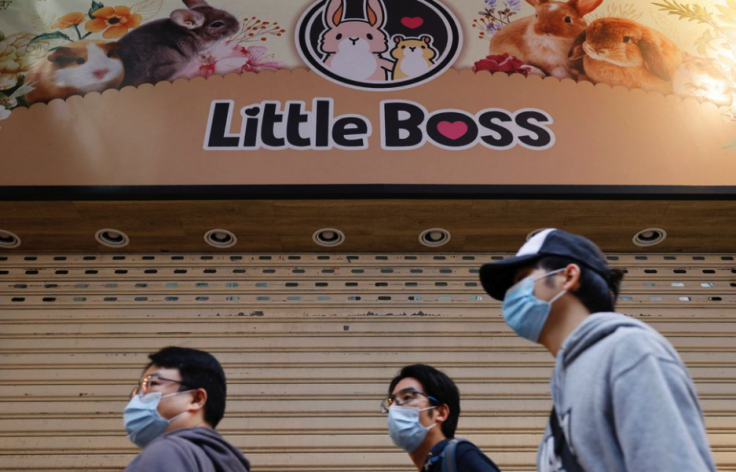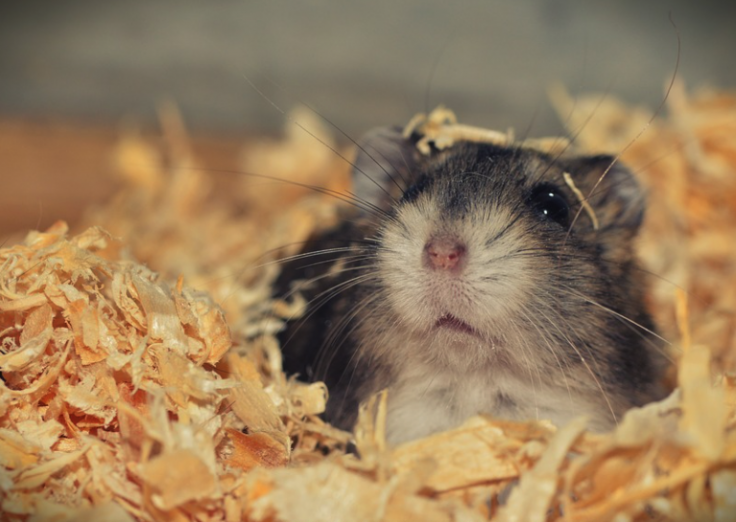Hong Kong will cull about 2,000 hamsters and other small animals after a pet store worker and several rodents tested positive for Covid-19. It is the latest dramatic measure Hong Kong officials have taken as part of the city's "zero COVID" approach
The announcement by the Hong Kong government on Tuesday sparked outrage among pet owners and animals rights activists, with several online petitions urging authorities to reconsider.
Pet Shop Owner, Customer and 11 Hamsters Tested Positive

The decision come in the wake of an emerging cluster of infections linked to the Little Boss pet store, where a 23-year-old employee was confirmed positive for the Delta variant on Monday. A customer who visited the store and interacted with the employee later tested positive as well.
After investigating the pet store, officials said on Tuesday that 11 hamsters had tested preliminary positive for Covid, raising concerns about the risk of animal-to-human transmission, which according to international health authorities, is possible but low.
Environmental samples taken at the shop's warehouse, where other species of small animals are held, also confirmed traces of coronavirus, officials said. The hamsters at the pet store were imported from the Netherlands in two batches -- on Dec. 22 and Jan. 7.
On Tuesday, authorities seized all the small animals in the shop, including hamsters, rabbits, guinea pigs and chinchillas, to be tested and euthanized -- regardless of the test result -- citing a health hazard to the public.
Pet Store Owners, Pet Owners Asked to Hand Over Their Hamsters
All pet stores selling hamsters in the city have been ordered to hand the animals over to be put down, with similar orders given to anybody who bought a hamster between Dec. 22. And Christmas.
Video footage emerged on Tuesday showing Covid control workers donning hazmat suits and carrying red plastic bags at numerous pet stores in the city, where they are disinfecting the premises and taking the hamsters away from the store to be dealt with "humanely," according to authorities.
Authorities also suspended the import of all small animals into the city, and told all pet stores selling hamsters to suspend operations immediately until all their small animals have tested negative.
Outrage Among Pet Owners, Animal Rights Organizations

More than 20,000 people have signed the largest online petition urging the government not to cull the animals. Some social media users said many hamsters may have been bought around the holidays as gifts for young children.
"Hamsters are our family, everybody please think rationally, don't give them up because of one incident," said the Hamster Concern Society, a volunteer organization in Hong Kong.
Hong Kong's Society for the Prevention of Cruelty to Animals (SPCA) said in a statement it was "shocked and concerned" by the government's decision, which "did not take animal welfare and human-animal bond into consideration.
Authorities Defend the Cull as 'A Safe and Feasible Way to Control the Epidemic'
According to the US Centers for Disease Control and Prevention, there have been documented Covid-19 cases in animals who likely caught the virus from humans -- however, there is far less evidence to suggest the possibility of animal-to-human transmission. However, authorities defended the cull, arguing it was in the interest of public health and safety.
A spokesperson for the city's Agriculture, Fisheries and Conservation Department (AFCD) said Tuesday that all hamsters would be killed regardless of their test result because the virus' incubation period means "negative test results do not necessarily mean that the hamsters have not been infected."
He added that the government doesn't have the facilities or means to test more than a thousand hamsters every day, let alone isolating and quarantining all the small animals in the city -- so killing them was "a safe and feasible way to control the epidemic."
Testing and isolating pets, and killing only the ones determined to be a threat, "could not control the epidemic completely and may cause loopholes," he added.









